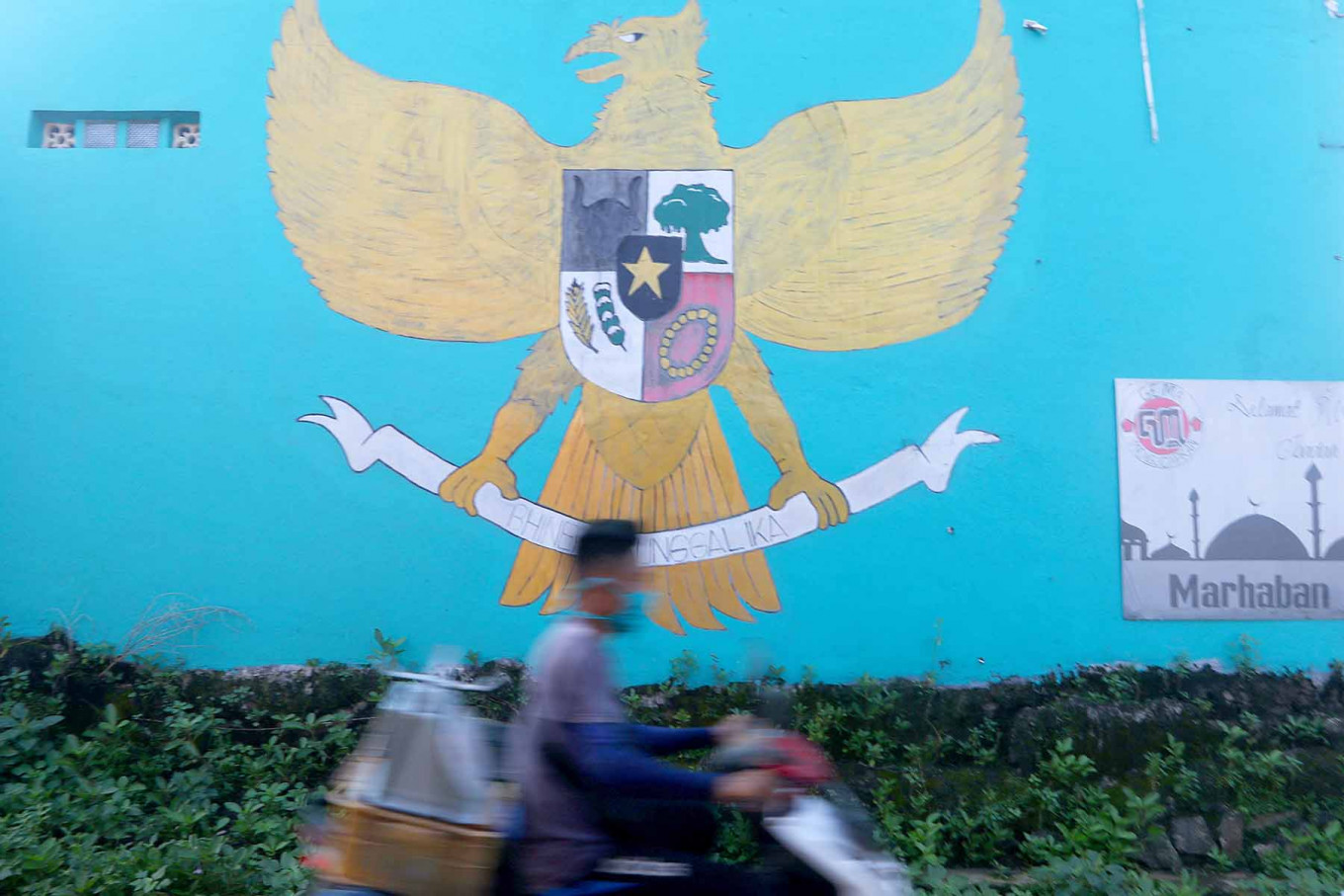Popular Reads
Top Results
Can't find what you're looking for?
View all search resultsPopular Reads
Top Results
Can't find what you're looking for?
View all search resultsRed scare sinks Pancasila bill in House
Muslim organizations, including Nahdlatul Ulama (NU) and Muhammadiyah, along with the Indonesian Ulema Council (MUI) have led the campaign to stop the House from deliberating the HIP bill, which they fear could lead to the reemergence of communism in the country.
Change text size
Gift Premium Articles
to Anyone
A
coordinated campaign by Muslim organizations and Islamist political parties at the House of Representatives, which capitalized on the fear of communism, has successfully blocked the deliberation of the Pancasila Ideology Guidelines (HIP) bill, a piece of legislation proposed by the nationalist Indonesian Democratic Party of Struggle (PDI-P).
On Tuesday, following a contentious plenary session at the House involving PDI-P politicians sparring with fellow lawmakers from Muslim-based political parties, the government of President Joko "Jokowi" Widodo halted the deliberation of the HIP bill, which aims to regulate the values of the Pancasila ideology and the functions of the Agency for Pancasila Ideology Education (BPIP) – the leader of which is PDI-P chairperson and former president Megawati Soekarnoputri.
Muslim organizations, including Nahdlatul Ulama (NU) and Muhammadiyah, along with the Indonesian Ulema Council (MUI) have led the campaign to stop the House from deliberating the HIP bill, which they fear could lead to the reemergence of communism in the country.
Provisions in the bill state that Pancasila, the state's ideology comprising a belief in one God, a just and civilized humanity, the unity of Indonesia, democracy and social justice, will have three basic characteristics called Trisila (three principles) consisting of socionationalism, sociodemocracy and cultural divinity. All three values would then be crystallized in Ekasila (one principle) of gotong royong (mutual cooperation).
The country's two largest Muslim organizations and the Indonesian Ulema Council have called the bill “atheistic”, given that the trisila concept will degrade the “belief in one God” principle of Pancasila. Officials from the three organizations have also lambasted the bill, which has been an initiative of the House, for failing to include Temporary People’s Consultative Assembly Decree (TAP MPR) No. 25/1966 on the banning of communism in Indonesia.
The MUI has been at the forefront in the opposition to the bill and issued an edict on June 12 calling on all Muslims in the country to unite against the bill. The council said the bill could pave the way for the country to legalize communist ideology. “We don’t want the deliberation process of the bill to be postponed, we want a complete stop,” MUI secretary-general Anwar Abbas told The Jakarta Post on Saturday.
NU, meanwhile has been calling for President Jokowi's administration to officially reject contentious provisions in the bill and appreciated the government's decision to halt its deliberation.
The head of the organization's law, human rights and legislation division, Robikin Emhas, urged the government not to send an official letter to the House regarding deliberation of the bill. The House sent an official letter to the President to hand in its approval to jointly discuss the bill on May 20.
It would be illegal for the House to discuss the HIP bill if the President fails to send an official letter within 60 days after receiving the House’s request, according to the 2011 Law Arrangement Law.
NU youth wing organization Gerakan Pemuda (GP) Ansor has called on the House not to rush in its deliberation of the bill, saying that without incorporating provisions that would outlaw Marxism and Leninism, as well as regulations banning radical Islamist groups, it could create problems in the future. "Without fixing these issues, this [bill] could become the ammunition that will launch radical and intolerant groups," GP Ansor chairman Yaqut Cholil Choumas said as quoted by Antara.
Muhammadiyah secretary Abdul Mu’ti said his organization would closely watch development regarding the bill. “We also hope that the House will not propose a similar bill but under a different name in the future. We promise to keep monitoring any development of the bill,” he said.
Secretary-general of the Muslim-based United Development Party (PPP) Arsul Sani has also called for the inclusion of existing regulations to ban communism as a consideration in the bill. "We want the Temporary MPR decree on the banning of communism, Marxism and Leninism be included as a consideration in the bill," Arsul said.
Other political parties such as the Golkar Party and the NasDem Party have also agreed they could join deliberation of the bill only if the 1966 anti-communism decree was included.
The Democratic Party, the Prosperous Justice Party (PKS) and the National Mandate Party (PAN) have strongly opposed the bill.
Legal analysts meanwhile argued that what bothered those opposing the bill was its potential to create constitutional chaos.
Constitutional law expert at constitution and democracy watchdog Kode Inisiatif, Violla Reininda, said the House should not take the initiative to create laws on state ideology considering that Pancasila was in fact the highest law of the land. "Members of the public should focus on this rather than fussing over the bill's "communist" bent.
West Sumatra’s Andalas University constitutional law expert Feri Amsari said the public uproar over the bill was understandable given that the 1966 decree was not included in a bill that potentially regulates the country’s ideology. Feri also warned that the bill, once passed into law, could be unconstitutional as it would regulate the country's ideology.
Responding to the brouhaha, on Friday President Jokowi issued a statement that he would not send the presidential letter to the House to kick off the deliberation of the bill, arguing that there was no room for communism to flourish in the country.
“It is very clear that communism is banned in the country,” he said in a statement on Friday.










